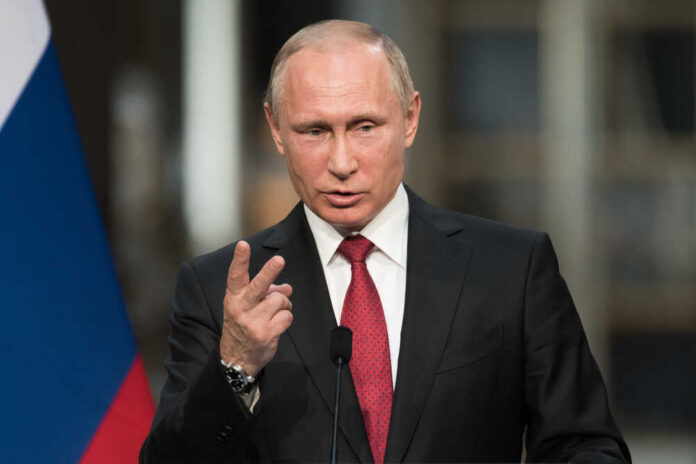Russia’s Vladimir Putin said last week that as a consequence of the war in Ukraine, Russia would not rejoin a U.N.-brokered accord aimed at preventing famines throughout the developing world.
At the Russia-Africa Economic and Humanitarian Forum, Putin said that his country would refuse to extend the Black Sea grain deal that sent 33 million tons of products to leave Ukraine’s ports.
He stated that Western countries were getting the majority of the supply and were reluctant to relax sanctions on Russia and that Moscow would instead adopt a more equitable system of resource allocation. The Central African Republic, Mali, Burkina Faso, Somalia, Zimbabwe, and Eritrea might get up to 50,000 tons of grain from Russia in the next three to four months. The shipment of the products will be provided at no cost.
Anuradha Mittal, founder and executive director of The Oakland Institute, discussed the Western media’s role in spreading misinformation regarding the Black Sea grain trade and the IMF and World Bank’s partition of Ukrainian farmland on an edition of Going Underground.
In this segment, Mittal addressed United Nations data showing that contrary to widespread media coverage, the vast bulk of grain shipped under the Black Sea Grain Initiative was sent to wealthy nations.
She elaborated on the impending neoliberal gutting of Ukraine when the conflict ends, as well as the wholesale privatization of Ukraine’s farmland, low grain exports owing to the Russia-NATO proxy conflict in Ukraine, and the involvement of major agricultural firms in artificially boosting grain prices via speculation.
According to a report, Ukraine is turning to Brussels for financial assistance following the failure of the Black Sea grain agreement.
However, the European Commission lacks the funds necessary for subsidies of Ukrainian grain exports, and the concept is met with resistance from other EU states.
Ukraine wants the EU to make up for the loss of the Black Sea route, and it is seeking ways to do it. Ukraine sent a letter to EU trade director Valdis Dombrovskis recently asking for financial help to offset part of the transport expenses associated with shipping Ukrainian goods through so-called “Solidarity Lanes.”


















